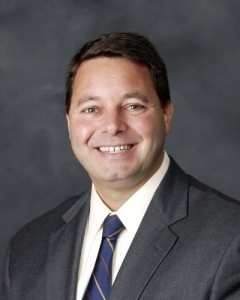This is the third in a series of columns about the candidates running for the 74th Assembly District. In the first two, we met Leslie Daigle and Bob Rush. Next week I’ll offer my reflections on the three candidates and my opinions on the needs of the 74th.
Allan Mansoor, a Republican, is the declared incumbent – although the 74th is a newly redrawn district and technically has no incumbent. In 2010, Mansoor was elected to the old 68th Assembly District, 20 percent of which falls into the new 74th. Got that straight?

Mansoor, who earned an associate degree from Coastline Community College in 1998, is a former Orange County Deputy Sheriff. He served on the Costa Mesa City Council from 2002-2010. (He was mayor from 2005 to 2010.) On a recent morning we met at the Metropointe Starbucks to discuss the three issues I had previously raised with his opponents, Republican Leslie Daigle and Democrat Bob Rush.
Mansoor began by explaining that he went into local politics because, “like many of my neighbors, I was concerned about quality-of-life issues. We wanted a safe community with streets and infrastructure that were properly maintained. We were concerned about traffic. When I started to pay attention to the issues before the City Council, I began to see areas where I felt like I could have a positive impact.”
The environment: Mansoor said he grew up going to the beaches in Newport and Huntington. “We all want a clean environment in our state, and oftentimes there’s a right and a wrong way to do it. At the same time, we want business to be vibrant in our state. So I do have some concerns with some of the drastic measures that have been taken. … There has to be a sense of reasonable balance.” Mansoor admits to the need for “some regulation” but believes that is “best done by elected bodies, not appointed commissions [like the California Air Resources Board]. That way there’s some accountability to the steps we take.”
Mansoor also wants more local management of the environment. “I think there’s a lot more accountability when things are handled at the local level. … ‘Back to the people,’ as I am on many issues. … Trying to move state government is like trying to move the Titanic – and oftentimes it’s too little too late. … We all want clean water and beaches, and urban runoff is certainly an issue. Obviously we don’t want dangerous chemicals in our waters and some of that can be and is regulated at the state and federal level. … I love the beach as much as anybody else, and I want to see it clean for generations to come.”
Education: In his time in the Assembly, Mansoor said that he has “toured schools, met with teachers, administrators, and school board members … student groups from colleges and universities. I’ve always had an open-door policy and meet with anyone, but I’ve also been proactive in soliciting meetings on education issues. … In just about all cases, I want the same things for education everyone else wants. It was wrong to cut education funding in last year’s budget. This is why I joined with many of my colleagues in proposing a no-tax-increase, no-education-cut budget. We can balance the budget without cutting education or raising taxes if the majority party was willing to implement reforms and spend more responsibly.”
Public Pension Fund Reform: During Mansoor’s years with the Orange County Sheriff’s Department, he saw what he calls “the enormous cost to the taxpayers, the unsustainable amounts being paid out, and the huge difference between public and private sector pensions. … The public sector has guaranteed [pension] benefits that’s often 100 percent for life at taxpayer expense.” Mansoor left the Sheriff’s Department before he was fully vested; consequently he says that his pension — he is eligible at age 50 in 2014 — will be at “a greatly reduced rate.”
In 2011, Mansoor introduced AB 961, which would have prohibited recognized local and state employee organizations (unions, for example) from negotiating pension benefits with public employers. The bill died, though he still thinks it is a necessary reform. What about the less draconian measure of public employers negotiating more effectively regarding such benefits? Mansoor agreed that could be possible “when the government leaders participating in the negotiations are independent from the labor groups they are negotiating with. There are several members in the Legislature who are former labor organizers, and just about every Democrat is so beholden to labor that they’ve said publicly and privately that they won’t do anything to offend union leaders. Someone who will not do anything to offend union leaders is not someone who can effectively negotiate public employee contacts.”
Finally, I asked Mansoor to define that highly popular buzz word, “fiscal conservative,” to which he responded: “Fiscal conservatives base spending decisions on a perspective that taxpayer funds are held in trust for the benefit of the taxpayer, not special interests.”


